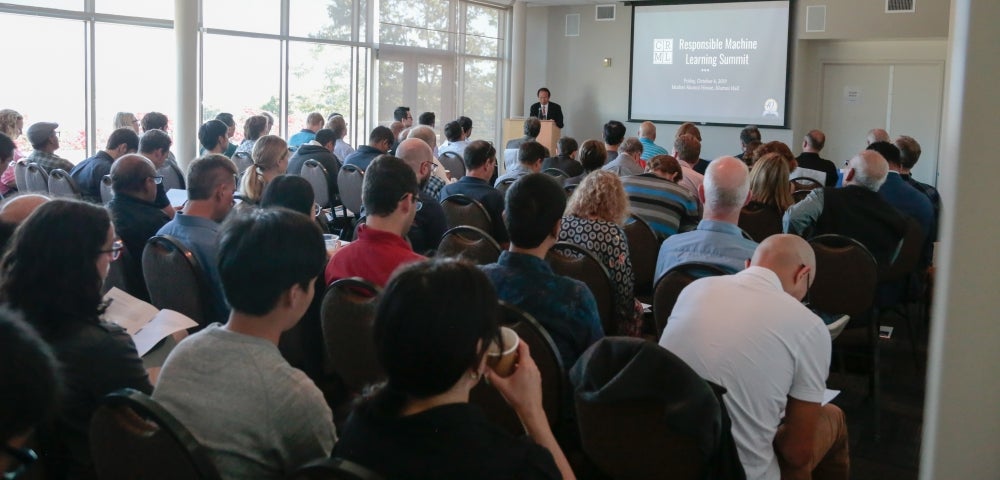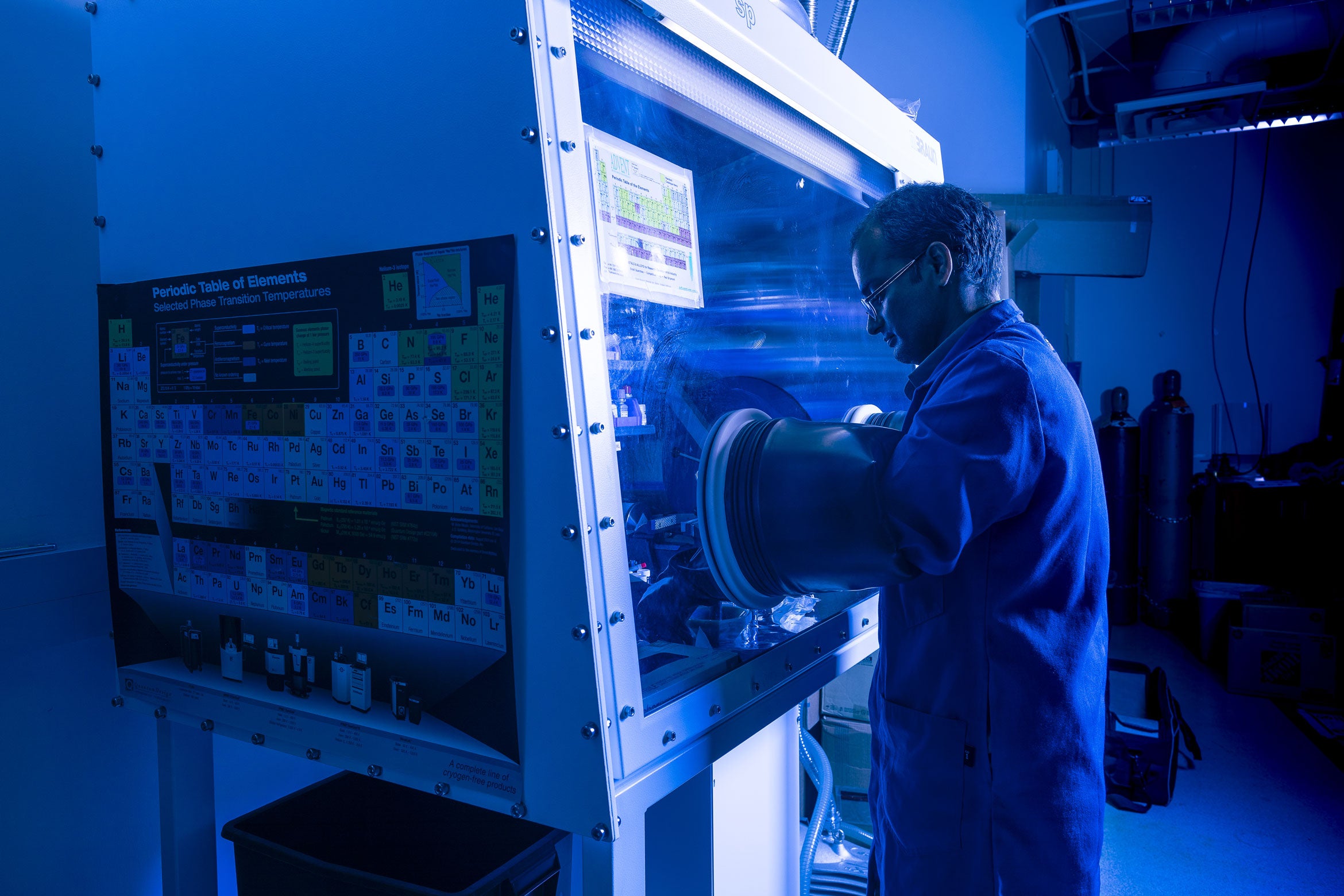Leading the Charge
Scientists from Intel, Amazon, Facebook and Google joined some of the leading academic minds on artificial intelligence (AI) to discuss the future of machine learning during the inaugural Responsible Machine Learning Summit hosted by UC Santa Barbara. With more than 120 students, faculty, business leaders and invited guests on hand, every speaker and panelist agreed on the importance of establishing an ethical foundation for machine learning, in which a computer uses algorithms and data to make predictions or decisions on its own.
“We need to better understand the mutual influence between society and machine learning,” said William Wang, a professor of computer science and organizer of the event. “Personally, I’m interested in improving the quality of life by learning the important societal factors and impacts that should be considered when building algorithms, such as fairness, transparency, privacy and accountability.”
The summit served as the opening for Wang’s Center for Responsible Machine Learning. The center reflects the university’s new commitment to define and build the future of machine learning algorithms and human-aware AI systems.
“UC Santa Barbara is one of the fastest growing research hubs in artificial intelligence and machine learning,” said Chancellor Henry T. Yang during his welcome address at the summit. “The center establishes a truly interdisciplinary vision of machine learning research that bridges engineering, the social sciences and the humanities to establish a new ethical and responsible foundation for machine learning.”
The one-day workshop featured a slate of distinguished speakers. Omer Reingold, a computer science professor from Stanford University, discussed algorithmic fairness during his opening keynote address. Additional speakers included: Joe Walther, distinguished professor of communication and director of UCSB’s Center for Information Technology and Society; Zachary Lipton, assistant professor at Carnegie Mellon University; Alex Smola, distinguished scientist and vice president at Amazon Web Services; Manmohan Chandraker, assistant professor at the UC San Diego; and Yulia Tsvetkov, assistant professor from Carnegie Mellon.
Lucila Ohno-Machado, chair of UC San Diego Health’s Department of Biomedical Informatics and associate dean for informatics and technology, delivered the closing keynote address, discussing how to protect the privacy of biomedical data.
“Overall, the summit was a success,” said Wang. “The goal was to unite the best researchers in the field and openly embrace and talk about the challenging problems in responsible machine learning and AI.”
UCSB’s Linda Petzold, a distinguished professor from the departments of computer science and of mechanical engineering, and Yasamin Mostofi, an electrical and computer engineering professor, participated in an industry panel alongside Facebook research scientist Sam Corbett-Davies; Luca Foschini, co-founder and chief data scientist at Evidation Health; Lama Nachman, director of anticipatory computing lab at Intel Labs; Prem Natarajan, vice president of Amazon Alexa AI; and Vinodkumar Prabhakaran, an ethics and fairness research scientist at Google.
“The center helps UCSB establish itself as a leader in machine learning and AI research,” said Wang, who has received a DARPA Young Faculty Award from the U.S. Department of Defense, three IBM faculty awards, and a total of three research awards from Facebook and Adobe. “AI and machine learning are changing many different industries, which is why it’s so essential to better understand the responsibilities of the technologies that shape our world.”
For more information about the Center for Responsible Machine Learning, visit ml.ucsb.edu.





